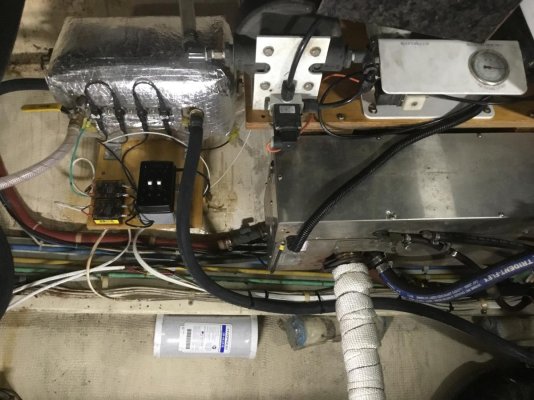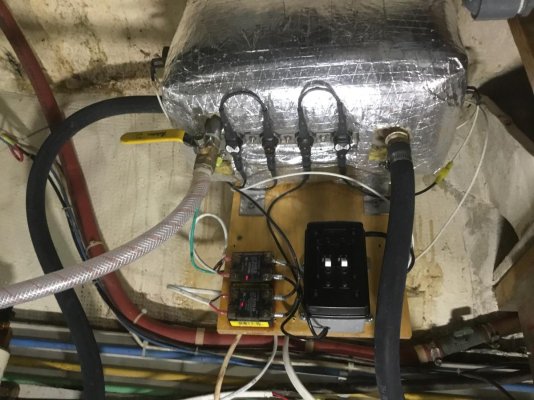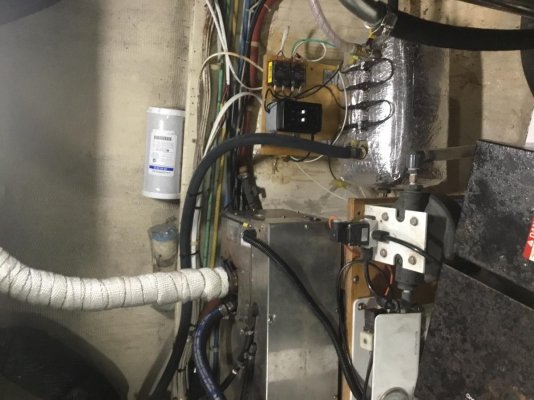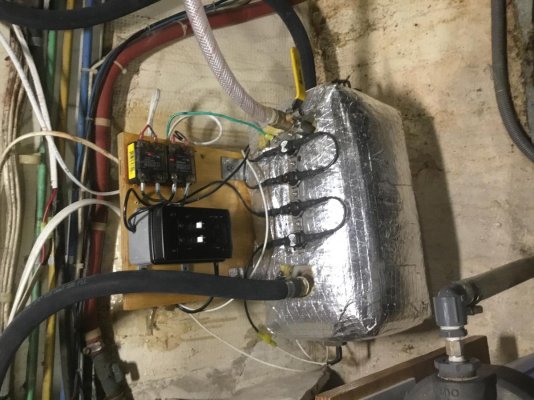Russell Clifton
Guru
We have a Hurricane II diesel heater on our boat. I see in the owners manual that these heaters have a 120v heating element that can be wired so you don't need to always use diesel to heat the water. It looks like it would be easy to do.
Have any of you that have these heaters done this and does it work satisfactorily? Of course it would only be used while connected to shore power.
Have any of you that have these heaters done this and does it work satisfactorily? Of course it would only be used while connected to shore power.




